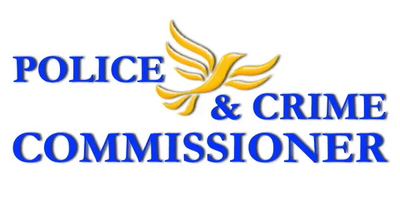Interview (Part 2): Helen Korfanty - Lib Dem candidate for Suffolk PCC election

An interview with Helen Korfanty -- Part 2. For more information, see Helen's website at http://www.korfanty.org.uk.
What do you think are the biggest challenges that the PCC will have to face?
Money is a perennial problem, of course, and not everything can be solved by simply increasing council tax (which, in any case, would be financially onerous for those on low incomes). Some sort of balance needs to be found so that service levels can be maintained. The recent cutbacks in police funding have led to the loss of seventy community support officer jobs, and the ending of public access to fifteen police stations in Suffolk. This leaves just three police stations open to the public.
There is a risk that we are inadvertently reducing our police force to an emergency service, and that we are losing community contact at ground level. Community policing is absolutely vital.
How would you approach the role of PCC?
I believe in "bottom up" management. If you want to improve the effectiveness of an organisation, then go to the people who do the work and ask them how it can be done better. This wisdom seems self-evident, but it is so rarely done.
In addition to that approach, I would look at the evidence-based practices which have been shown to work for others, and at best practice in other police forces. No matter how much relevant knowledge we bring to the table ourselves, we can always learn from others.
What have you learned from your day job that will be useful to you as PCC?
First and foremost, I have met and worked with a huge variety of people, from all levels of society and (as I am a criminal defence solicitor) on both sides of the law. So I am quite good at dealing with people in a public capacity, whether in one-to-one meetings, or as an after-dinner speaker, or in addressing official assemblies such as the magistrate's court.
I have learned that it is important to see both sides of a story, and that sometimes careful negotiation is needed in order to reach an outcome that is acceptable to all parties and for the common good.
Of course, a lot of my work has been directly linked to police investigations and criminal proceedings. I have worked extensively with police at the sharp end, as well as dealing with members of the public who are accused of criminal activity and with victims who have suffered as a result of crime.
I have seen how family relationships can be a key factor in many areas in which the police have to intervene. The police are often called upon to manage the fallout from relationship breakdowns, for example, which places a burden on the police service that could be alleviated if an alternative approach were taken. Domestic violence is a particularly important issue to tackle, since it can create unstable or unhappy home and social environments, which can in turn contribute to criminal or antisocial behaviour well beyond that of the violence itself.
I am also concerned about the wellbeing of victims of crime. In fact, I chaired South Suffolk Victim Support Scheme and was a representative on the Regional Committee for some years, as well as volunteering at the CAB and supporting the Domestic Violence Forum.
My professional responsibilities have given me a strong awareness of equality and diversity issues. I have seen how bias and inappropriate thinking can be practised completely unconsciously in organisations (and, indeed, in entire professions), without people being aware of the impact of their own behaviour. These habitual or institutional attitudes can be hard to address, but it is important that we recognise and challenge assumptions and prejudice.
